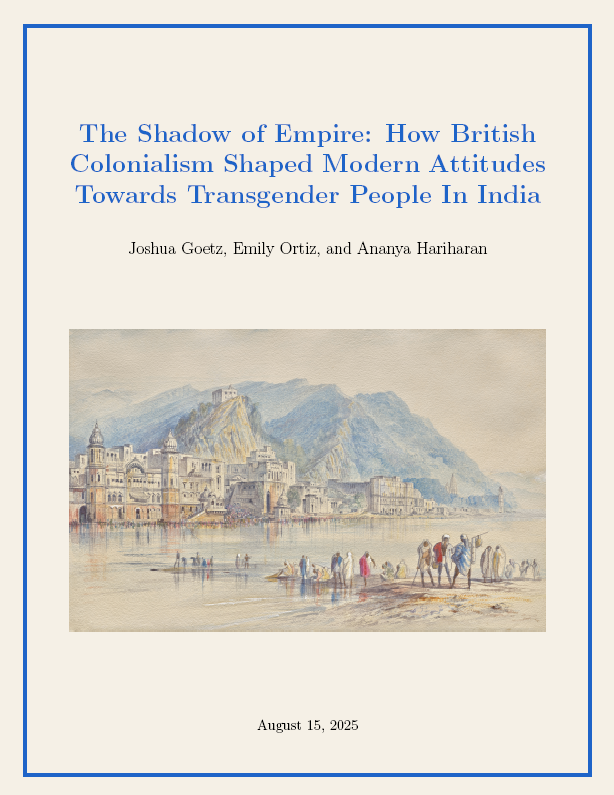The Shadow of Empire: How British Colonialism Shaped Modern Attitudes Towards Transgender People in India
In this report, 2024-25 LCHP Grantees Joshua Goetz, Emily Ortiz, and Ananya Hariahrain consider the ways that British colonialism impacted attitudes in India towards transgender people, with ramifications extending into the modern world. Through historical and quantitative analysis, the authors contextualize the problem and its modern ramifications through interviews with community-based organizations and transgender people in India.
Previous literature posits that British rule – through its promotion of Victorian  gender norms and explicit criminalization of transgender identity – caused modern Indians to become more transphobic than their precolonial ancestors. However, while the literature is rich with descriptions of British efforts to stigmatize and marginalize transgender identity, the empirical evidence for this claim is minimal. This study presents, to our knowledge, the first attempt to empirically validate this claim.
gender norms and explicit criminalization of transgender identity – caused modern Indians to become more transphobic than their precolonial ancestors. However, while the literature is rich with descriptions of British efforts to stigmatize and marginalize transgender identity, the empirical evidence for this claim is minimal. This study presents, to our knowledge, the first attempt to empirically validate this claim.
The authors examine variation in Indian politicians’ stances on transgender issues across India’s parliamentary constituencies (PCs) in the 17th Lok Sabha. They found that politicians from PCs with more exposure to direct British rule during the colonial era hold more transphobic stances than politicians from PCs with less direct exposure, after controlling for potential confounding variables. The difference is particularly strong in electorally competitive PCs. The authors cautiously interpret this as evidence that British colonialism durably increased transphobia in India, manifesting in opposition to the inclusion and acceptance of transgender Indians today. In addition to this analysis, the authors interviewed numerous local stakeholders regarding the modern implications of this history, and consider methods to reduce the discrimination faced by transgender people in various aspects of Indian society. They conclude with a set of recommendations for steps forward to address this issue, as well as open questions for future research.
Read the full report here.


